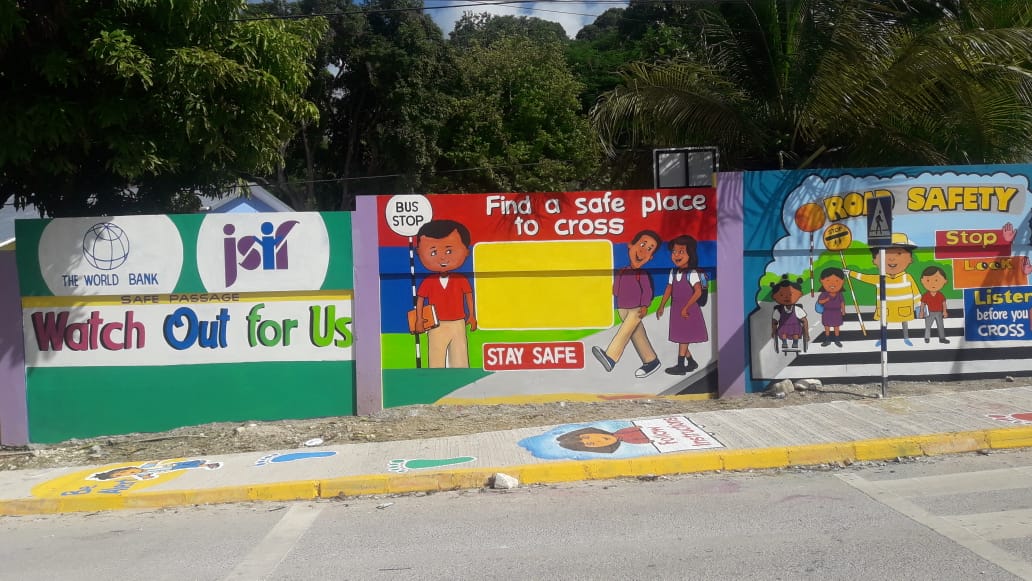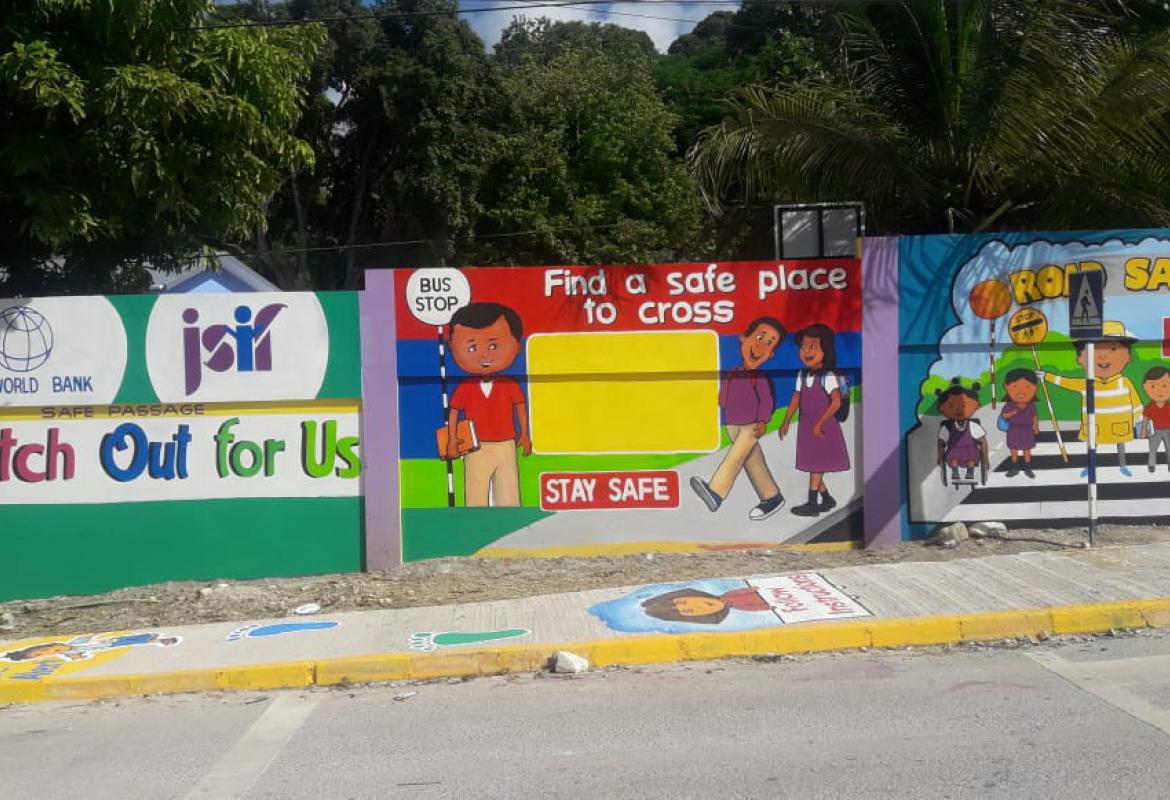JSIF’s Safe Passage Project: Walk Good! ensuring a safe journey to school

When the JSIF through its World Bank funded Integrated Community Development Project (ICDP) initiated the implementation of holistic social development projects in 18 underserved communities across Jamaica, it was immediately recognized that students in these communities were at risk on their journey to and from school. In fact, it was startling to see children competing with motorists for a space in the road, as in most cases there were no dedicated sidewalks for pedestrians, inadequate separation of pedestrians from traffic, deficient crossing facilities and a lack of road signs in the vicinity of these schools. Students as young as six years old were left to the mercy of impatient motorists who gave scant regard for pedestrians, least of all the most vulnerable road users. Horror stories have been recounted of speeding motorists injuring and even killing very young children on their way to school. This situation was enough to support the Jamaica Social Investment Fund’s intervention to provide safe routes for students, by making improvements to the road infrastructure and crossings in the vicinity of schools located in these vulnerable communities. The Safe Passage Project was not implemented in a silo, as the project was a part of targeted social and infrastructure interventions that are geared towards increasing the perception of safety, and access to basic services in the communities.
The Safe Passage project was implemented in the communities of Denham Town, Hannah Town and Tivoli Gardens in Kingston; Maxfield Park and Wilton Gardens in St. Andrew; Barrett Town and Granville in St. James, and York Town in Clarendon at a cost of approximately JM$115 million for all components, and focussed primarily on improving road safety for students as they traverse various roadways to and from school. The project included the installation of Pedestrian crossings; electronic pedestrian crossing signs; traffic signs; guard rails; rumble strips; construction of sidewalks; painting of curb walls and murals to reinforce road safety messages and to enhance the aesthetics of the community; debushing of roadways; construction of access ramps for persons with physical disabilities; resettlement of vendors to locations off the sidewalks; creation of Road Safety Clubs in schools; employment of Crossing Guards and the initiation of Road Safety Monitors. The project has directly benefitted 3,700 persons, to include students and teachers and will impact approximately 37,000 persons indirectly.
Multi-pronged approach to development
The establishment of partnerships is a crucial factor for fulfilling JSIF's mandate of poverty alleviation. By joining forces strategically with key partners, the Fund ensures that there is a reduction in the duplication of efforts and allows for a more streamlined utilization of scarce resources. Additionally, partnership with the stakeholders responsible for operations and maintenance of the infrastructure supports the likelihood of sustainability after the project has been completed. Recognizing that no one approach would work to undertake a project of this magnitude, multiple levels of collaborations across disciplines and with community partners were used. Shunelle Nevers-JSIF Senior Social Officer responsible for the design & execution of the Safe Passage project, points out that, “the Safe Passage project would not have been successful in positively influencing the social norms of these communities without the contribution of partner agencies such as the Community Safety division of the Jamaica Constabulary Force (JCF), The Safety in Schools Unit of the Ministry of Education
Youth & Information (MOEYI), the Road Safety Unit of the Ministry of Transport & Works, Municipal Corporations, Community Development Committees (CDC’s), community residents, parents, students and staff at the various schools that were directly impacted by the intervention. The strategic collaboration among these stakeholders who share a vision that our children deserve to enjoy a safe journey to and from school, has helped to ensure the project’s success & sustainability.”
Project influencing policy
Richard Troupe, Acting Director of the Safety and Security Unit at the Ministry of Education explains that, “the Ministry of Education is super impressed by the bold initiative that was displayed by the JSIF, in implementing a project of this magnitude, that was undertaken using the Organization’s 6 E methodology and which has directly resulted in the saving of lives in these communities.”
Such is the expected impact of the Safe Passage project that the Safety and Security
Unit at the Ministry of Education is seeking to replicate the JSIF’s model by partnering with other organizations, such as UNICEF, to ensure the safe journey of students in communities all across the island.
In accordance with the Safe School Zone Act, it was revealed that the value of the JSIF’s Safe Passage model has influenced the design of a pilot Safe School Zones programme that is being developed by the Safety and Security Unit at the Ministry of Education and will be rolled out in each of the Ministry’s regional offices. As part of this pilot, a major thoroughfare in each region has been identified for this intervention.
Due to the suspension of face-to-face instruction at most schools, as a result of the COVID -19 pandemic, the true impact of the Safe Passage project cannot be evaluated at this time. Nevertheless, it is envisioned that this valuable initiative that has been undertaken by the JSIF will continue to have a life-saving effect on residents of the beneficiary communities for years to come.





